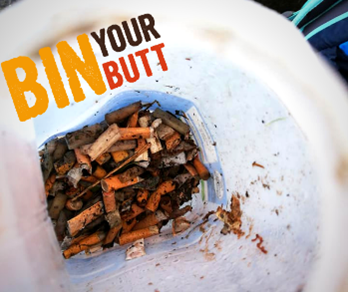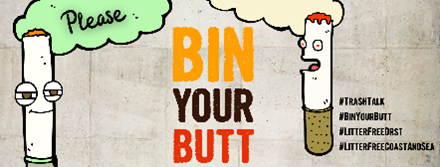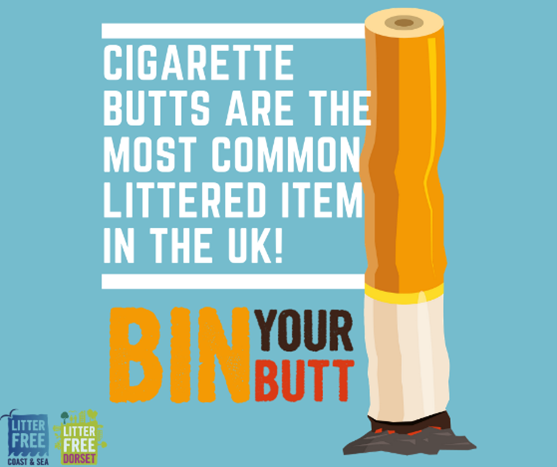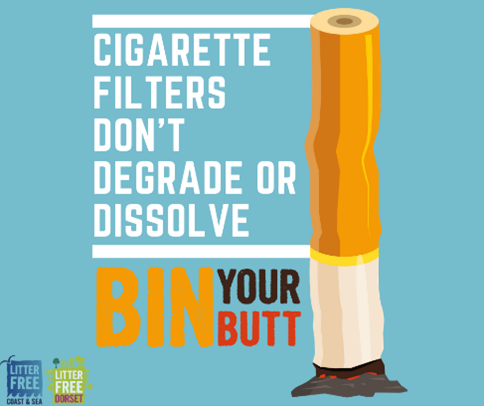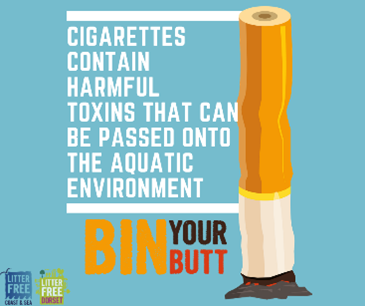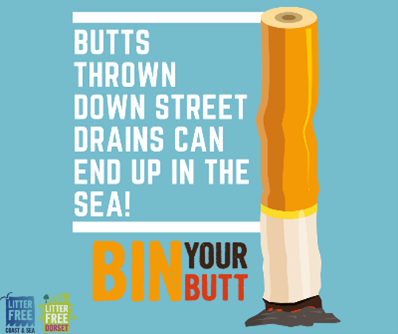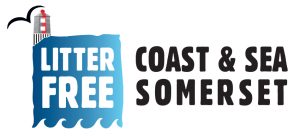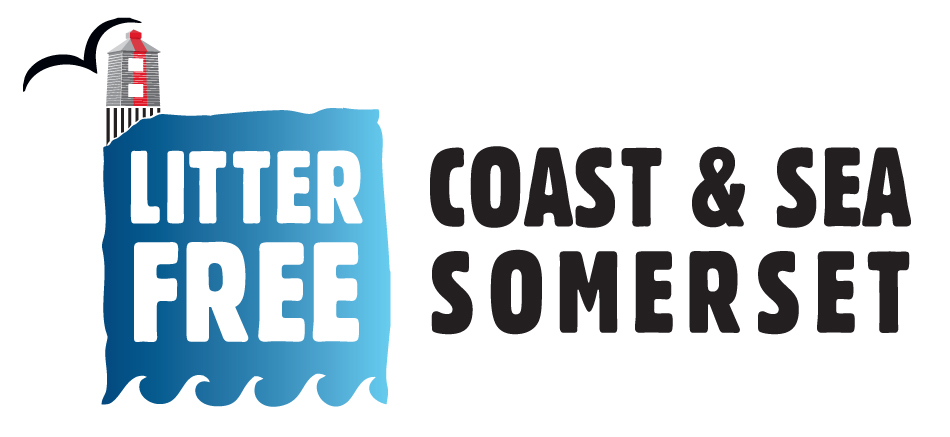Cigarette Butt Campaign
Cigarette butts are the most commonly littered material in the world. They are not biodegradable which means they remain in the environment for a long time. Most cigarette butts end up in the ocean because they are transported from towns and cities through storm drains and into the wider river and wastewater systems. Once in the ocean they release toxins, get ingested by fish and break down into microplastics causing even more damage. To try to deal with this unsightly littering and environmental issue, we have been raising awareness through a number of our campaigns.
Keep Somerset Litter Free and #BinYourButt
What’s the problem?
- Cigarette butts are the biggest plastic polluter of our ocean – they do not biodegrade!
- Cigarette butts travel from street drains into rivers and the sea.
- Cigarette butts harm wildlife that mistake the butts as food.
Cigarette butts can take anything from 18 months to 15 years to breakdown, depending on their surrounding conditions. Filters in cigarettes contain a form of plastic, cellulose acetate, meaning it is a very slow process to degrade in the environment.
Cigarette butts are often dropped along roadsides or down alley ways, and as they are small and light, easily get washed down drains. Surface water drains don’t contain filters to prevent cigarette butts from passing through, and so these butts directly enter our waterways, polluting our rivers, lakes and, eventually, the sea.
Cigarette filters contain toxins and heavy metals that, if littered onto the ground and then into our street drains, can travel into rivers and the sea and leach toxic chemicals into water sources. One study found that a single cigarette butt can contaminate seven litres of water in just one hour.
Cigarette butts can harm both land and marine animals that mistake the butts as food. Toxins released from ingested butts can be dangerous, whilst the butts themselves and other ingested pieces of plastic pollution can accumulate, causing blockages, internal damage and ultimately death.
More info: www.keepbritaintidy.org/get-involved/support-our-campaigns/bin-the-butt
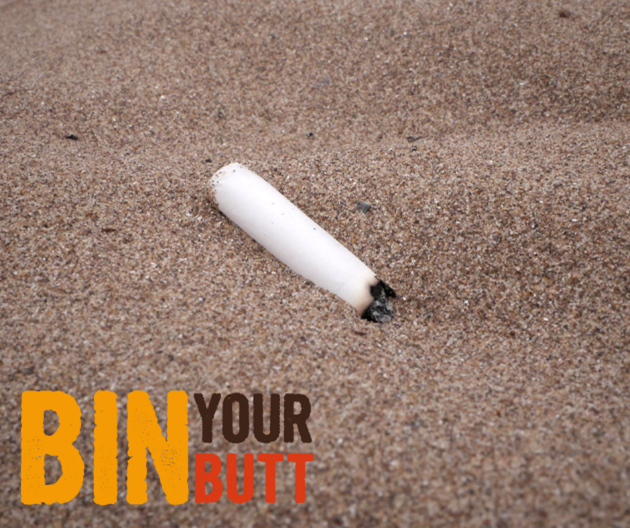
Bin your Butt!
According to Keep Britain Tidy, cigarette butts are the most common form of litter in England, while The Ocean Conservancy have also revealed cigarette butts to be the most common item collected during their international ocean clean-up. LFCSS have joined with their sister team in Dorset alongside Litter Free Dorset asking smokers to think about how they dispose of their cigarette butts.
The Bin your Butt campaign was launched in October 2020 through social media. The project was a revamp of an earlier project, which had run in 2017, aimed at increasing awareness of the environmental damage that cigarette butts can cause. Due to COVID-19 restrictions on gatherings and travelling, we ran the campaign online through Facebook, Twitter, Instagram and YouTube to reach smokers in the Somerset area. The second phase of the campaign involving face-to-face public engagement will take place when COVID restrictions are lifted.
The campaign reached 12,709 people across all social media platforms. This included a range of images, videos and factoids to keep the public engaged throughout the month. The animation video was viewed over 2,700 times on Facebook alone. Campaign Art Work and Outreach:
